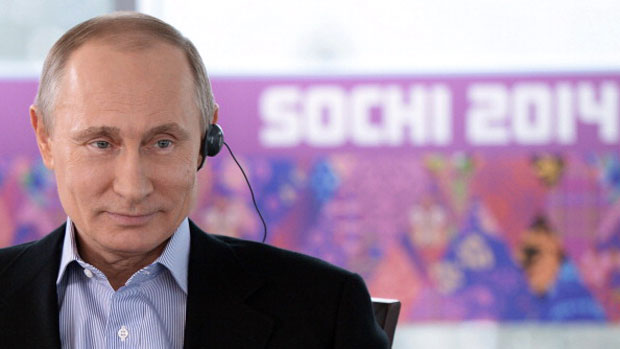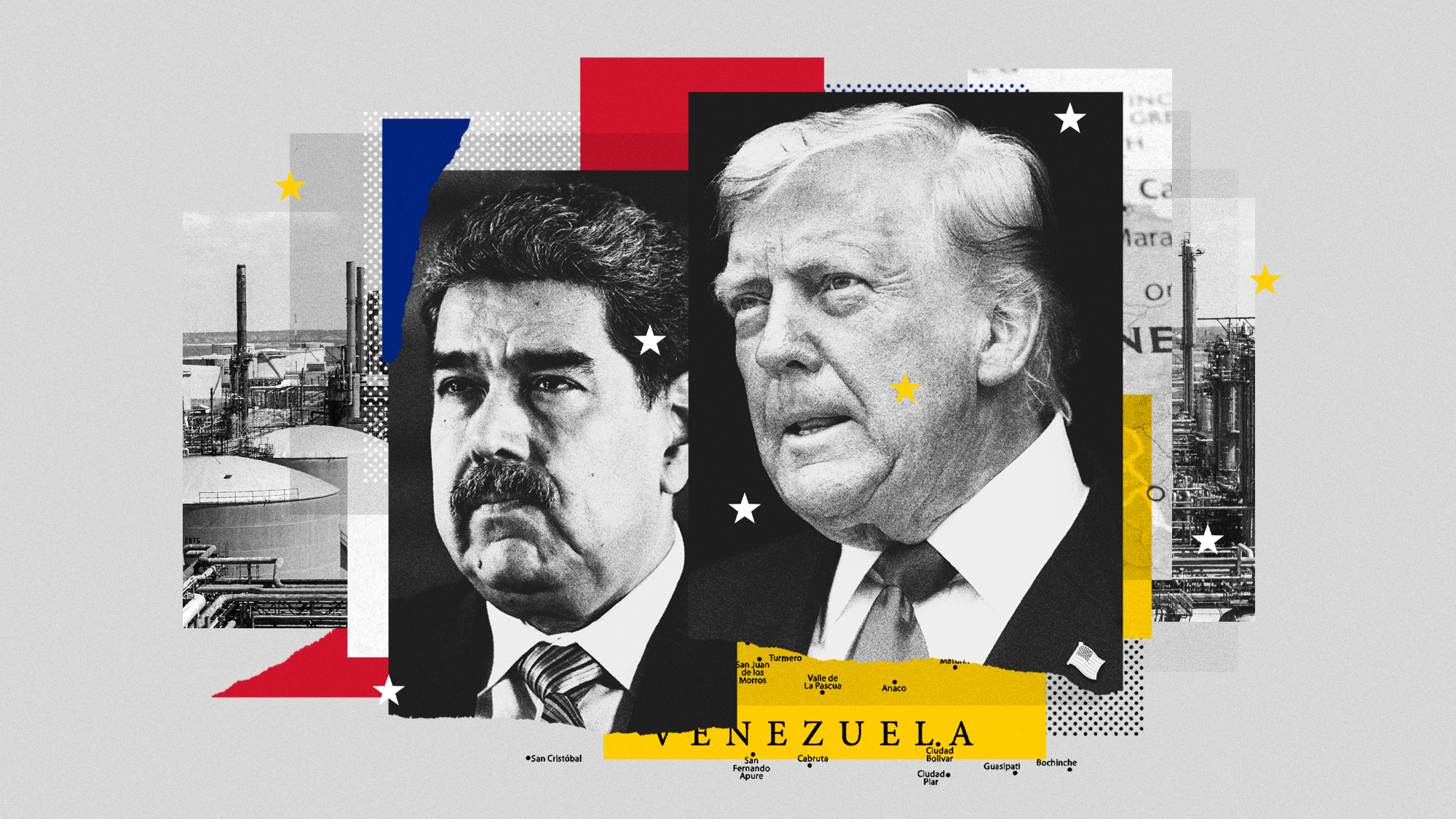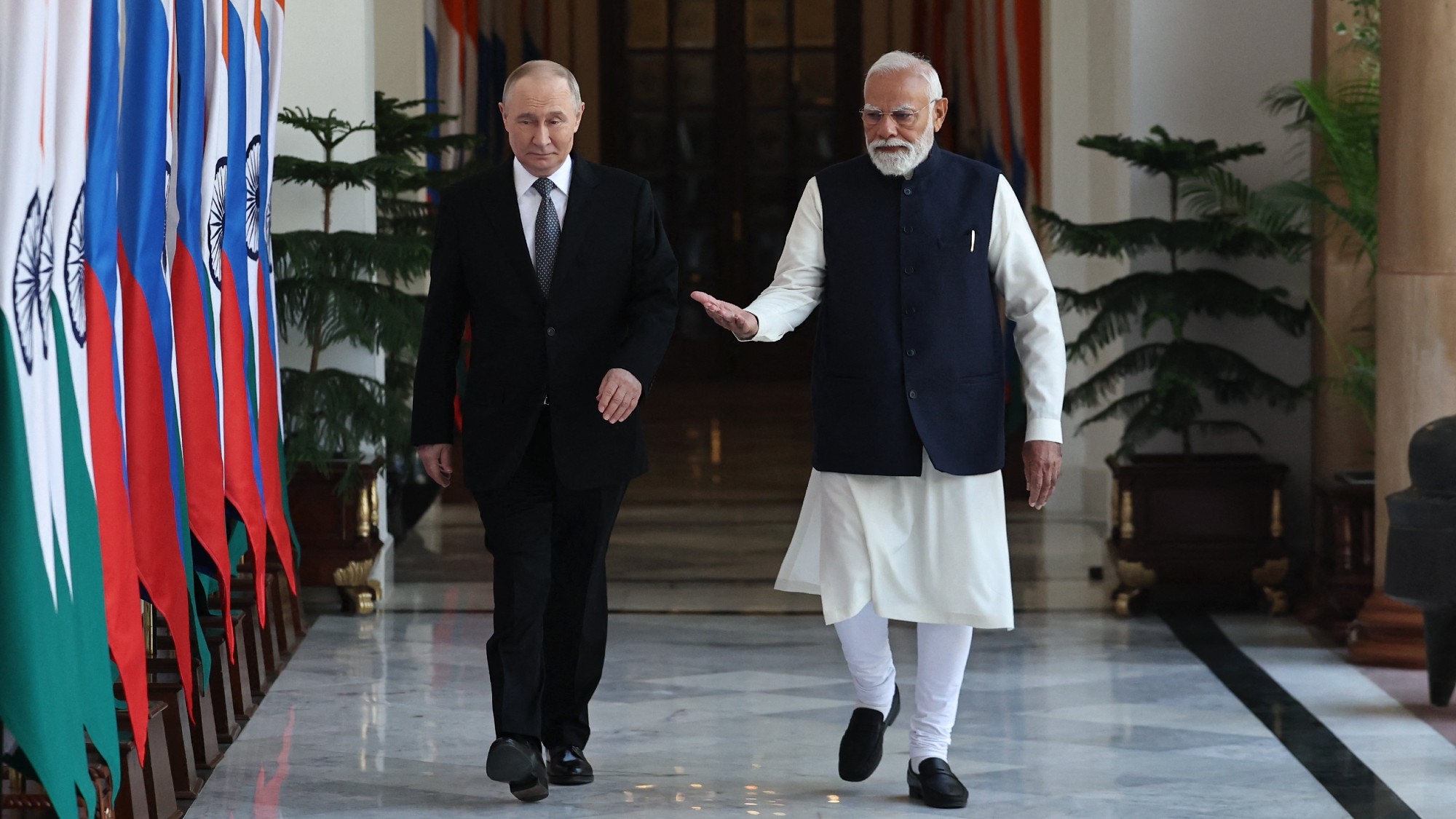Putin 'not prejudiced' – he has gay friends and likes Elton John
Russian president attempts to appease Western media over new laws against gay propaganda

A free daily email with the biggest news stories of the day – and the best features from TheWeek.com
You are now subscribed
Your newsletter sign-up was successful
VLADIMIR PUTIN has claimed that he is "not prejudiced in any way", praising Elton John and insisting he has gay friends.
The Russian president has faced criticism over the country's new laws against gay propaganda, with calls from some critics to boycott next month's Sochi Winter Games.
In a charm offensive, Putin spoke to Western reporters attempting to assure them that Russian laws present "no danger" to gay people.
The Week
Escape your echo chamber. Get the facts behind the news, plus analysis from multiple perspectives.

Sign up for The Week's Free Newsletters
From our morning news briefing to a weekly Good News Newsletter, get the best of The Week delivered directly to your inbox.
From our morning news briefing to a weekly Good News Newsletter, get the best of The Week delivered directly to your inbox.
"I would like to draw your attention to the fact that in Russia, unlike in one third of the world's countries, being gay is not a crime. So there is no danger for people of this non-traditional sexual orientation to come to the Games," he said.
Putin tried to insist that the new law is not discriminatory and is "only" about restricting the "propaganda of paedophilia and homosexuality" among children. He described Elton John as an "extraordinary person, a distinguished musician" and said that "millions of our people sincerely love him, despite his sexual orientation".
Speaking on the BBC's Andrew Marr show, he added: "If you want my personal attitude, I would tell you that I don't care about a person's sexual orientation. I myself know some people who are gay – we are on friendly terms. I am not prejudiced in any way."
Perhaps the interpreters misheard, suggests the Daily Telegraph, as on Friday Putin was seen telling gay people to "leave the children alone".
A free daily email with the biggest news stories of the day – and the best features from TheWeek.com
In The Guardian, Barbara Ellen describes Putin's words as "simultaneously offensive, ridiculous and manipulative". Attacking gay "propaganda" rather than actual gayness is "a reeking red herring", she says, and "just as insidious was Putin's oh-so-casual linking of homosexuality to paedophilia, as if it were perfectly reasonable to bracket them".
Putin's instinctive link between homosexuality and paedophilia is an "old chestnut", says Libby Purves in The Times, and "a moment's reflection shows how unfair it is".
She points to statistics that suggest the most enthusiastic predators on children are "hetero all the way" and highlights countries in which underage girls are forced to marry to middle-aged men.
The Telegraph speaks to one of the first people to fall foul of Russia's new law. Dmitry Isakov was convicted, fined and lost his job after standing in a street with a placard calling for freedom for the gays and lesbians of Russia. He sheds light on the real implications of the legislation. "It sends a signal that says gays are people you can fine, who you can insult, who you can maybe even beat up," he says.
And the right to fight against such discrimination is also banned. "It effectively strips gays of the right to fight back against discrimination with public protest," says Isakov, "a right which any minority should have – it is very likely to lead to attitudes becoming even more hard line."
-
 ‘Those rights don’t exist to protect criminals’
‘Those rights don’t exist to protect criminals’Instant Opinion Opinion, comment and editorials of the day
-
 Key Bangladesh election returns old guard to power
Key Bangladesh election returns old guard to powerSpeed Read The Bangladesh Nationalist Party claimed a decisive victory
-
 Judge blocks Hegseth from punishing Kelly over video
Judge blocks Hegseth from punishing Kelly over videoSpeed Read Defense Secretary Pete Hegseth pushed for the senator to be demoted over a video in which he reminds military officials they should refuse illegal orders
-
 How corrupt is the UK?
How corrupt is the UK?The Explainer Decline in standards ‘risks becoming a defining feature of our political culture’ as Britain falls to lowest ever score on global index
-
 Trump’s ‘Board of Peace’ comes into confounding focus
Trump’s ‘Board of Peace’ comes into confounding focusIn the Spotlight What began as a plan to redevelop the Gaza Strip is quickly emerging as a new lever of global power for a president intent on upending the standing world order
-
 The high street: Britain’s next political battleground?
The high street: Britain’s next political battleground?In the Spotlight Mass closure of shops and influx of organised crime are fuelling voter anger, and offer an opening for Reform UK
-
 Trump considers giving Ukraine a security guarantee
Trump considers giving Ukraine a security guaranteeTalking Points Zelenskyy says it is a requirement for peace. Will Putin go along?
-
 What have Trump’s Mar-a-Lago summits achieved?
What have Trump’s Mar-a-Lago summits achieved?Today’s big question Zelenskyy and Netanyahu meet the president in his Palm Beach ‘Winter White House’
-
 Why, really, is Trump going after Venezuela?
Why, really, is Trump going after Venezuela?Talking Points It might be oil, rare minerals or Putin
-
 Moscow cheers Trump’s new ‘America First’ strategy
Moscow cheers Trump’s new ‘America First’ strategyspeed read The president’s national security strategy seeks ‘strategic stability’ with Russia
-
 Is a Putin-Modi love-in a worry for the West?
Is a Putin-Modi love-in a worry for the West?Today’s Big Question The Indian leader is walking a ‘tightrope’ between Russia and the United States